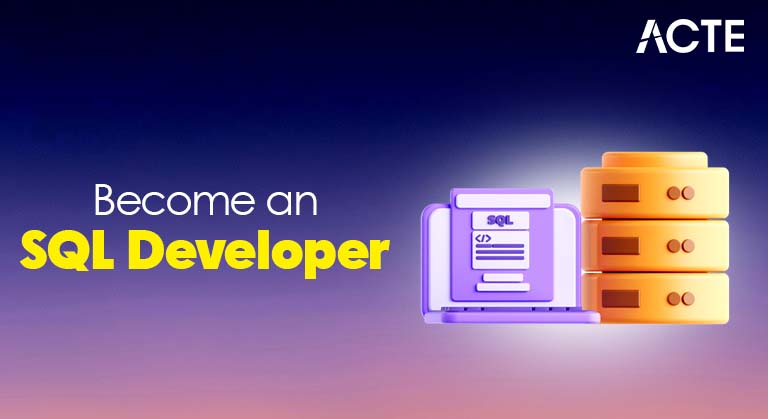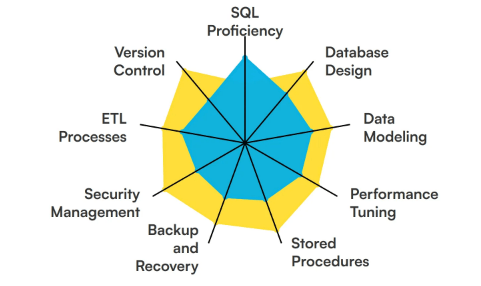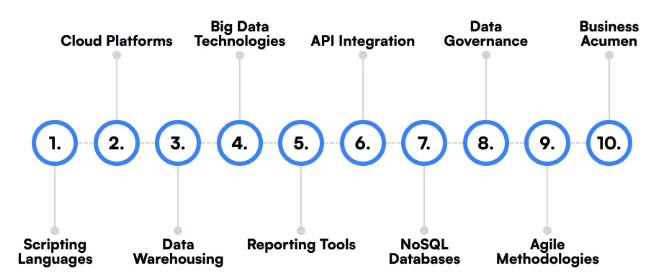
- Introduction to SQL Development
- Key Responsibilities of an SQL Developer
- Essential Educational Background
- Core Skills Required for SQL Developers
- SQL Languages and Tools You Must Learn
- Certifications to Boost Your SQL Career
- Career Opportunities and Salary Scope
- Final Thoughts: Charting Your Career Path
Introduction to SQL Development
Structured Query Language (SQL) is the standard language used for accessing, managing, and manipulating relational databases. In today’s data-driven world, where information is often compared to oil in terms of value, SQL developers are the skilled professionals who know how to extract, refine, and utilize this resource effectively. An SQL Developer plays a crucial role in any organization by designing, implementing, and maintaining databases that support business operations, software applications, and data analysis. These developers build the foundation that allows companies to make informed decisions, automate processes, and manage large volumes of data efficiently. The responsibilities of an SQL Developer go far beyond simply writing SELECT statements or basic queries in Database Training. This role involves performance tuning to ensure databases run efficiently, creating stored procedures and triggers to automate tasks, and enforcing data integrity and security. SQL Developers are also often responsible for integrating databases with other systems or platforms, which requires collaboration with other developers, analysts, and stakeholders across departments. They must understand both the technical aspects of database management and the business needs driving the data usage. Whether you are just beginning your journey in technology or shifting from another IT role, becoming an SQL Developer opens the door to a wide range of opportunities. Nearly every industry relies on databases, from finance and healthcare to e-commerce and education. Mastering SQL can help you secure a rewarding career path that combines problem-solving, logic, and real-world impact. It equips you with the tools to contribute meaningfully to your organization’s success and positions you as a valuable player in today’s increasingly data-focused landscape.
Are You Interested in Learning More About Database? Sign Up For Our Database Online Training Today!
Key Responsibilities of an SQL Developer
The role of an SQL Developer involves a wide range of responsibilities that are essential to effective data management and utilization within an organization. One of the core tasks is writing SQL queries to retrieve, manipulate, and analyze data, allowing businesses to make informed decisions based on accurate information. SQL Developers are also responsible for designing and developing relational database schemas that ensure data is stored efficiently and logically in Schema in SQL Server. In addition to building these structures, they work to optimize SQL queries for performance, ensuring that even complex operations run smoothly and quickly, particularly in environments with large datasets. Another important aspect of the role includes creating stored procedures, triggers, and functions to automate routine tasks and enforce business logic at the database level. SQL Developers often integrate SQL solutions with front-end applications or business platforms to provide seamless user experiences and support enterprise-wide functionality.

They play a vital role in maintaining data accuracy and security by applying proper constraints, indexing strategies, and user permissions. This includes ensuring that only authorized users can access or modify sensitive information. SQL Developers are frequently involved in generating reports and dashboards, especially when working with complex or interconnected data sources. They collaborate closely with analysts, developers, and project managers to understand requirements, refine data models, and deliver reliable solutions. Routine maintenance, performance tuning, and troubleshooting are part of the daily workflow, as is the implementation of backup and recovery strategies to safeguard against data loss. Altogether, the role requires a combination of technical expertise, attention to detail, and the ability to work within cross-functional teams to support data-driven objectives across the organization.
Essential Educational Background
- Preferred Degree: Most SQL Developer roles prefer candidates with a bachelor’s degree in Computer Science, Information Technology, or related fields.
- Core Curriculum: These degree programs usually cover essential topics such as database management systems (DBMS), programming languages, data structures, and algorithms.
- Foundation for Success: Understanding these foundational concepts helps build the technical skills necessary for designing, querying, and managing databases effectively.
- Not Always Mandatory: While degrees are preferred, a formal degree is not always mandatory to become an SQL Developer in Cassandra Vs MongoDB.
- Self-Taught Professionals: Many successful SQL developers are self-taught, gaining expertise through online courses, tutorials, and hands-on experience.
- Certifications and Projects: Demonstrating skills via certifications like Microsoft’s SQL Server certifications or Oracle’s database credentials can boost job prospects.
- Practical Experience: Building practical projects and contributing to real-world databases shows employers your capability beyond formal education.
- Proficiency in SQL: Deep understanding of SQL commands like SELECT, JOIN, GROUP BY, subqueries, and more, enabling efficient data retrieval and manipulation.
- Database Design: Ability to normalize databases, define relationships between tables, and create well-structured schemas that support scalability and data integrity in Database Training.
- Analytical Thinking and Logical Reasoning: Strong problem-solving skills to interpret data insights and craft optimized, logical queries and table relationships that perform well.
- Attention to Detail: Meticulousness in writing queries and designing databases to prevent data loss, avoid errors, and ensure accuracy in results.
- Knowledge of Database Management Systems (DBMS): Familiarity with popular DBMS platforms such as MySQL, PostgreSQL, Oracle, and Microsoft SQL Server, including their specific features and optimizations.
- Basic Programming and ETL Skills: Understanding programming languages like Python, Java, or C# aids in integrating SQL with applications; ETL (Extract, Transform, Load) knowledge helps in managing data workflows.
- Performance Tuning and Communication: Skills in query optimization, indexing, and performance tuning ensure fast, efficient data access. Strong communication abilities are essential for explaining data findings and collaborating with stakeholders and team members.
- Microsoft Certified: Azure Data Fundamentals: This certification covers core data concepts and how they are implemented using Microsoft Azure services, including SQL databases.
- Oracle Database SQL Certified Associate: Recognized worldwide, this certifies your ability to write efficient SQL queries and manage Oracle databases effectively.
- IBM Certified Database Associate: Focuses on fundamental database concepts and SQL skills, preparing you for roles involving IBM database products in DBMS vs RDBMS vs NoSQL.
- Google Cloud Professional Data Engineer: Validates your skills in designing and managing data processing systems on Google Cloud, with strong SQL and database components.
- PostgreSQL CE Certification: Specialized certification demonstrating proficiency in PostgreSQL database management and SQL querying.
- SQL for Data Science by Coursera: An online course and certificate ideal for beginners who want to apply SQL skills in data science and analytics.
- Database Programming with SQL by Oracle Academy & T-SQL by Microsoft Learn: These programs provide practical, vendor-specific SQL training, enhancing your ability to write procedural SQL for Oracle and Microsoft SQL Server environments.
To Explore Database in Depth, Check Out Our Comprehensive Database Online Training To Gain Insights From Our Experts!
Core Skills Required for SQL Developers

SQL Languages and Tools You Must Learn
As an SQL developer, proficiency in SQL alone is not enough to excel in the role. A strong understanding of the broader database ecosystem and familiarity with supporting tools are essential to work efficiently and adapt to different environments. To start, it is important to master Standard SQL, which follows ANSI-compliant syntax and works across most database systems. Beyond that, learning procedural extensions such as PL/SQL, which is used in Oracle databases, and T-SQL, Microsoft’s proprietary SQL dialect for SQL Server, will greatly enhance your ability to write complex and efficient database programs. These languages allow developers to create stored procedures, triggers, and functions tailored to specific database platforms in Types of Joins in SQL Server. In addition to languages, being comfortable with a variety of database management and development tools is crucial. MySQL Workbench is widely used for designing databases and executing queries in MySQL environments. For Microsoft SQL Server, SQL Server Management Studio (SSMS) is the primary interface used for database administration and development tasks. PostgreSQL users often rely on pgAdmin, a powerful and user-friendly tool for managing their databases. There are also universal SQL integrated development environments (IDEs) like DBeaver and DataGrip that support multiple database systems, making them useful when working across platforms. Moreover, many developers use Visual Studio Code with database extensions for coding and managing SQL scripts efficiently. Understanding how to integrate SQL with business intelligence tools such as Power BI or Tableau is also valuable, as it enables the creation of rich data visualizations and dashboards. Learning these languages and tools not only helps you become more efficient in your daily tasks but also makes you adaptable and competitive in a variety of industries and organizations.
Interested in Obtaining Your Database Certificate? View The Database Online Training Offered By ACTE Right Now!
Certifications to Boost Your SQL Career
Career Opportunities and Salary Scope
Once you become proficient in SQL, a variety of career opportunities open up across multiple roles in the data and technology fields. Common job titles for SQL professionals include SQL Developer, Database Administrator (DBA), Business Intelligence Developer, Data Analyst, ETL Developer, Database Engineer, and Data Warehouse Architect. Each of these positions involves working with data in different ways, from building and managing databases to analyzing data for business insights and designing large-scale data storage systems. In India, the demand for SQL-related roles continues to grow, and salaries reflect the value of these skills. For freshers, the average annual salary ranges between ₹3.5 lakh to ₹6 lakh in MongoDB Commands Cheat Sheet. With three to five years of experience, professionals can expect to earn between ₹7 lakh and ₹12 lakh per year. Senior-level developers with over seven years of experience often command salaries from ₹13 lakh to ₹20 lakh annually. Those working in multinational corporations or product-based companies can earn even higher, with packages reaching ₹18 lakh to ₹30 lakh or more. In the United States, the average salary for SQL developers varies depending on experience and expertise but generally falls between $75,000 and $120,000 per year. This competitive pay reflects the high demand for SQL skills across many industries. SQL is widely used in sectors such as finance, healthcare, retail, e-commerce, and software services. Because data is central to operations in these areas, SQL developers remain in demand wherever data exists. Mastering SQL not only offers access to a broad range of job opportunities but also provides career stability and growth potential in a data-driven world.
Are You Preparing for Database Jobs? Check Out ACTE’s Database Interview Questions and Answers to Boost Your Preparation!
Final Thoughts: Charting Your Career Path
Becoming an SQL Developer is an excellent career choice in today’s data-centric world, where the demand for skilled professionals continues to grow rapidly. Whether you are just beginning your journey in technology or transitioning from another IT role, mastering SQL opens doors to numerous opportunities in data analytics, database engineering, and business intelligence. To start, it is important to learn the basics of SQL syntax and understand the fundamentals of relational databases. This foundation will enable you to work confidently with data and perform essential operations. Once comfortable with the basics, you should focus on more advanced topics in Database Training such as stored procedures, indexing strategies, and query optimization techniques. These skills will help you write efficient and high-performing queries that can handle large datasets. Building practical projects is a key step in your learning process. Sharing your work online through platforms like GitHub can showcase your abilities to potential employers and help you stand out. Earning certifications can also validate your knowledge and demonstrate your commitment to professional growth. To gain real-world experience, seek internships or freelance opportunities where you can apply your SQL skills in practical scenarios. It is important to remember that SQL is just one tool in the broader data toolbox, so continuous learning and upskilling are essential to stay relevant. With dedication, consistent practice, and strategic career planning, you can progress from writing simple queries to advanced roles such as database architect or data strategist within a few years. These roles offer greater responsibility and influence over how data is structured and used in organizations. By following this roadmap, you will be well-positioned to build a rewarding and impactful career in the ever-expanding field of data management.


